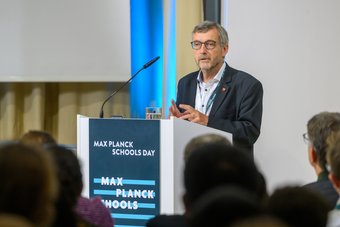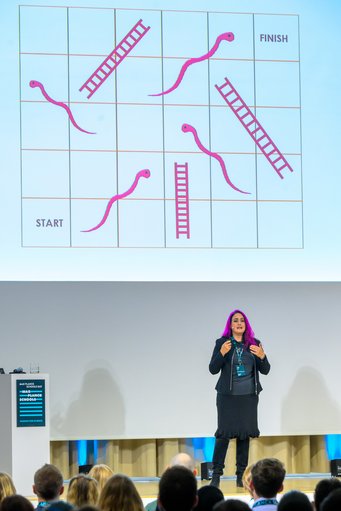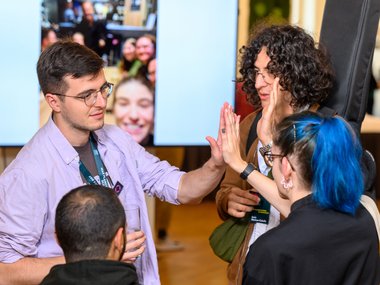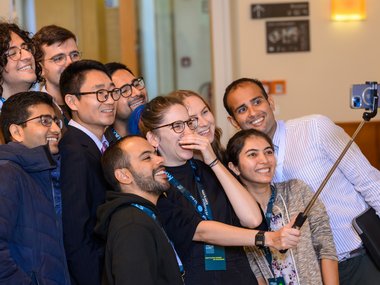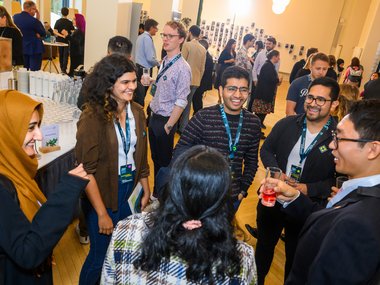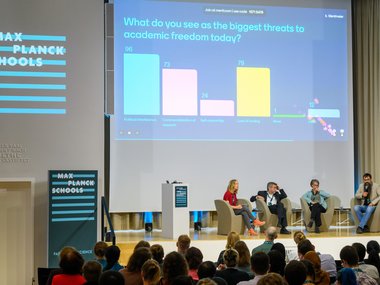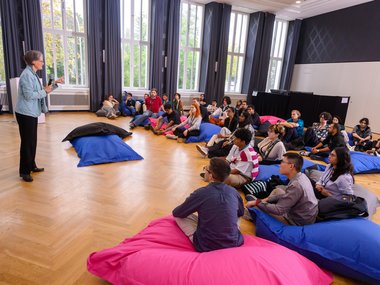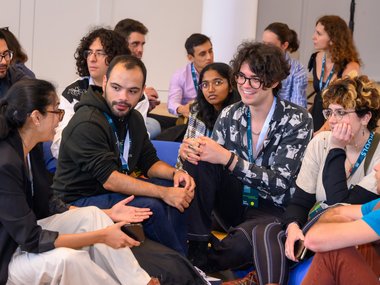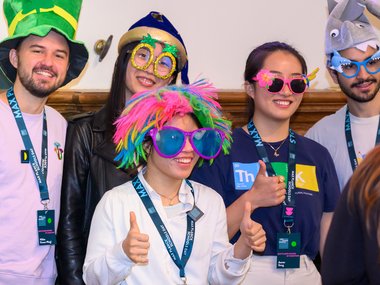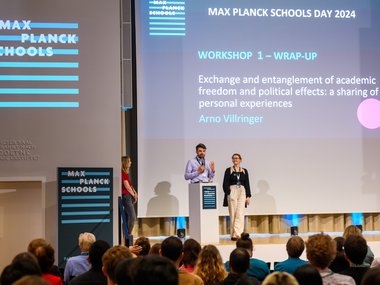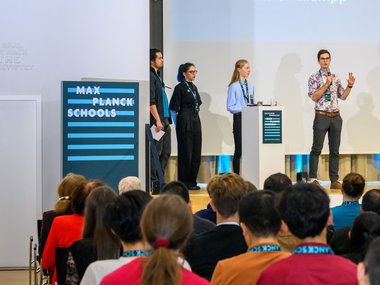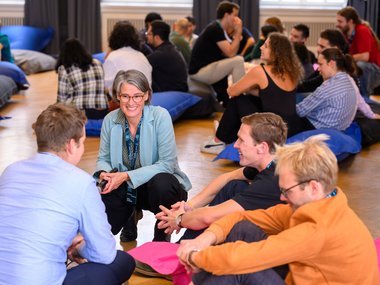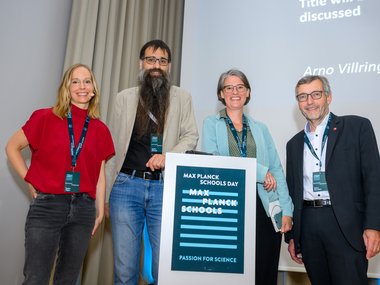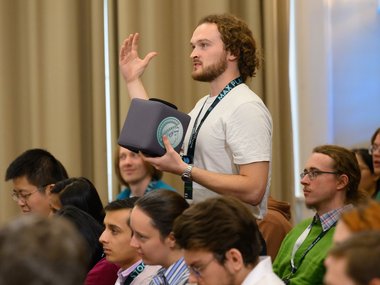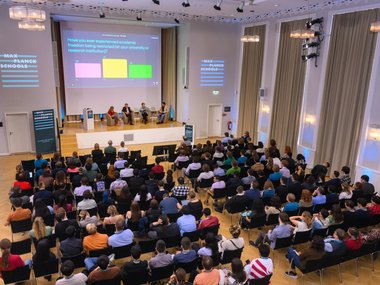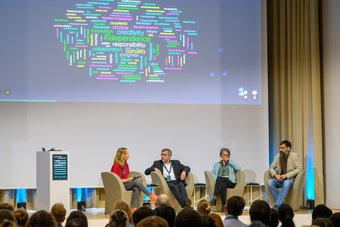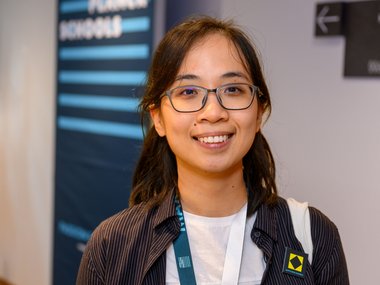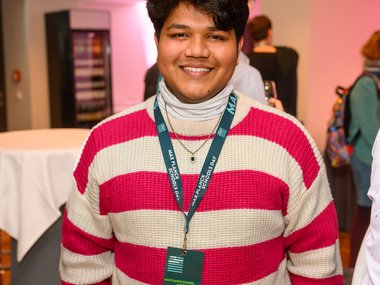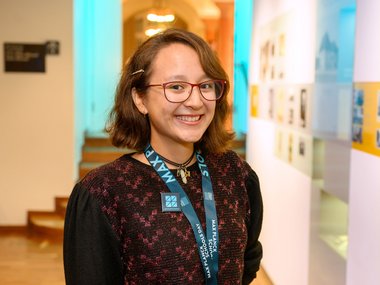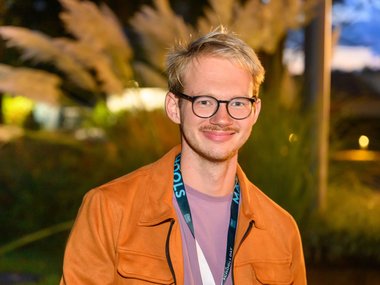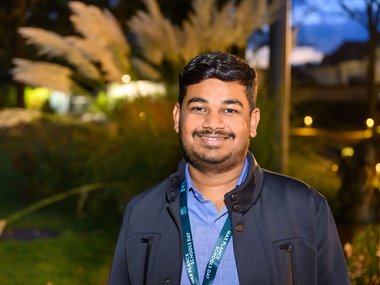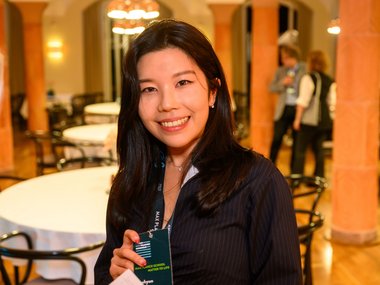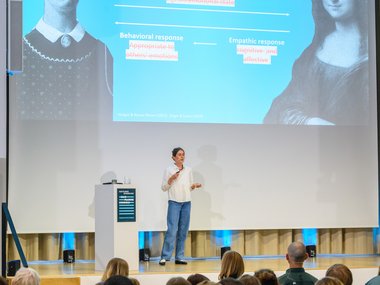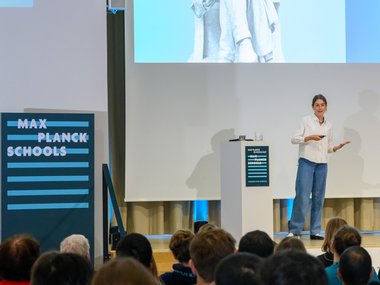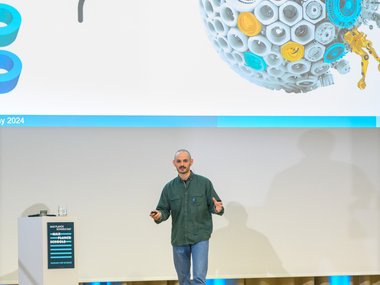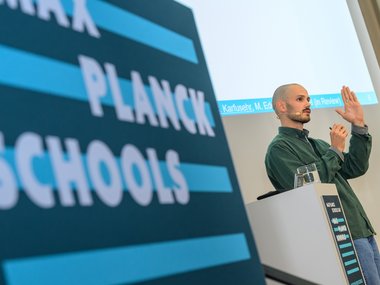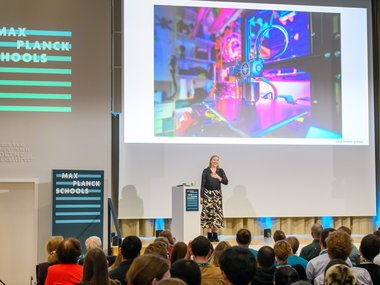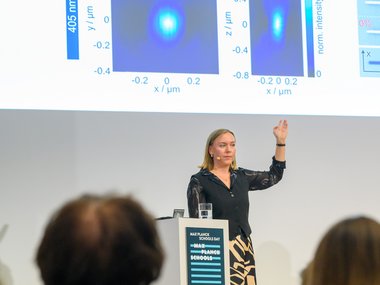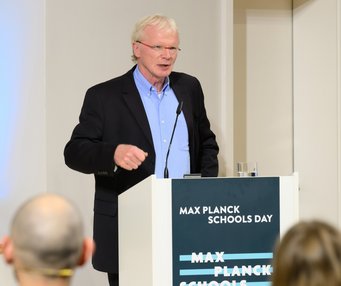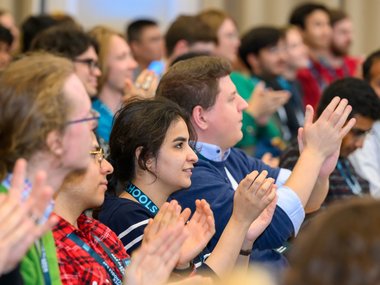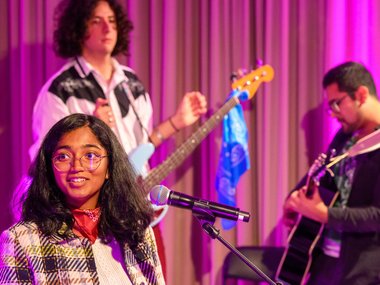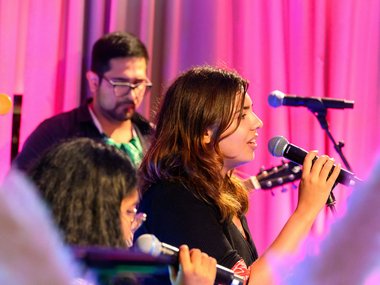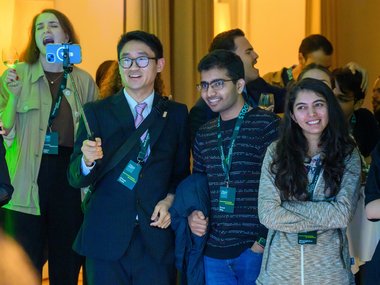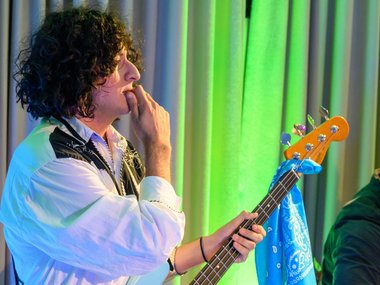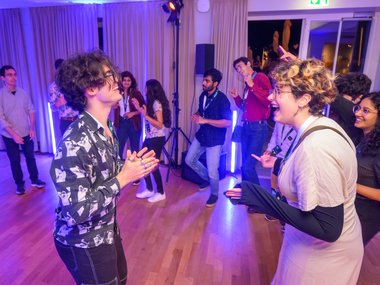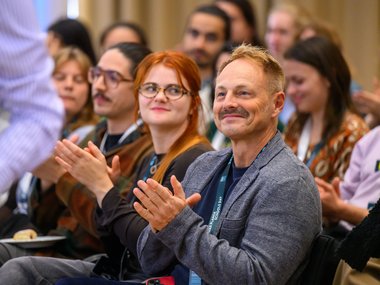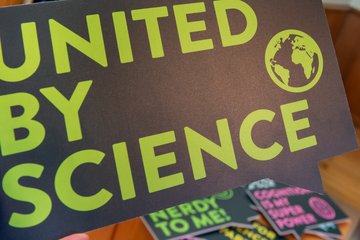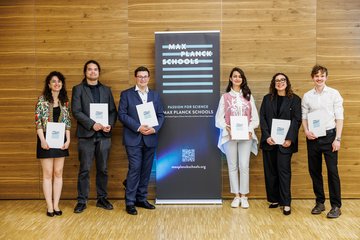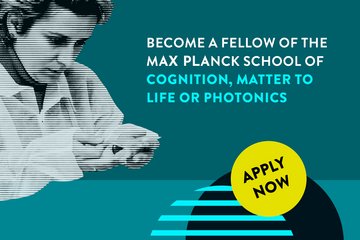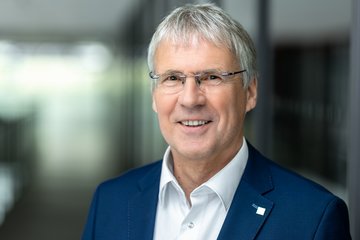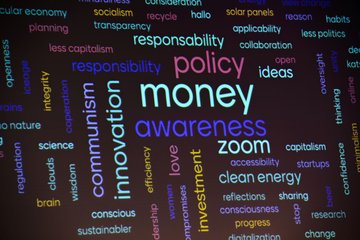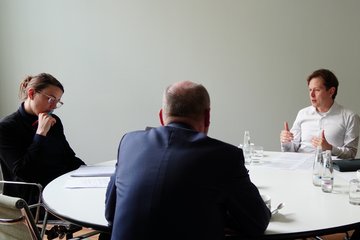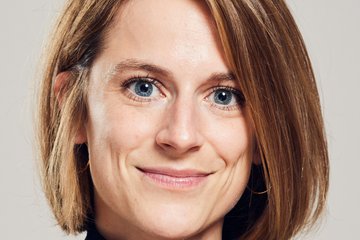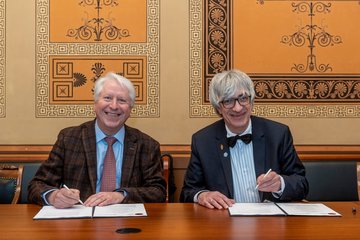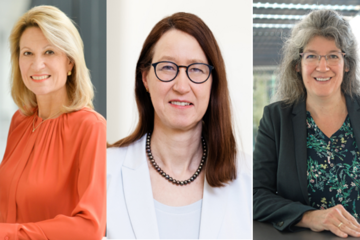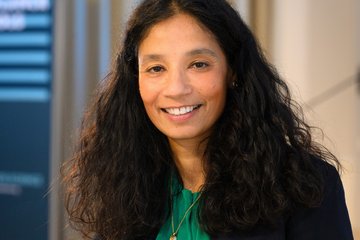“Fostering Connections far Beyond Science”
Looking back on the Max Planck Schools Day 2024
For the sixth time in a row, doctoral candidates, Fellows, and representatives of the three Max Planck Schools came together to celebrate the Max Planck Schools Day on September 24 at the Harnack House in Berlin. With this year’s leading theme “Academic Freedom in a Changing International Landscape”, the day was filled with lively discussions on academic freedom, international cooperation, and the responsibilities of science in times of emerging geopolitical challenges.
An inspiring opening with Walter Rosenthal
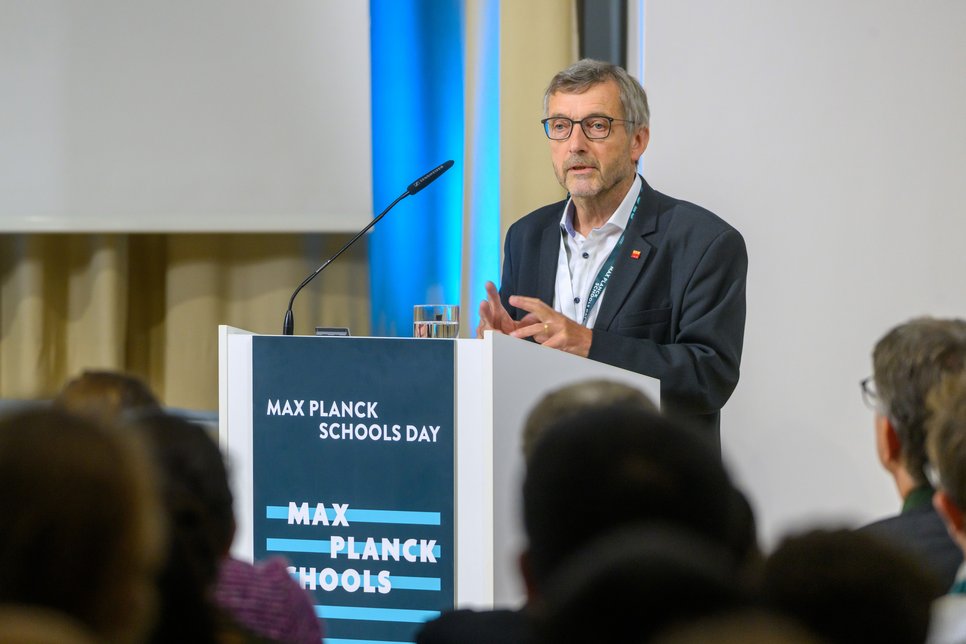
The day began with a warm welcome by Sophie Stigler, science journalist at Deutschlandfunk and moderater of the event. This year's opening speech was given by Walter Rosenthal, President of the German Rectors' Conference (HRK) and Co-Chair of the Max Planck Schools Steering Committee. He emphasized that universities and research institutions worldwide are under increasing political pressure and, in the face of global political developments and growing threats to the freedom of science, it is more important than ever to defend it against external influences. As an international network of scientists working in Germany, the Max Planck Schools are in a unique position to promote a free and open scientific culture. “Without academic freedom, there can be no real progress,” Rosenthal added. Finally, he addressed the young researchers in particular, encouraging the PhD candidates to get actively involved when their freedom of research is threatened. "You too are responsible for the future of science," urged Rosenthal, "and now more than ever it is important to stand up for academic freedom."
Michèle Heurs – Experiencing science with all your senses
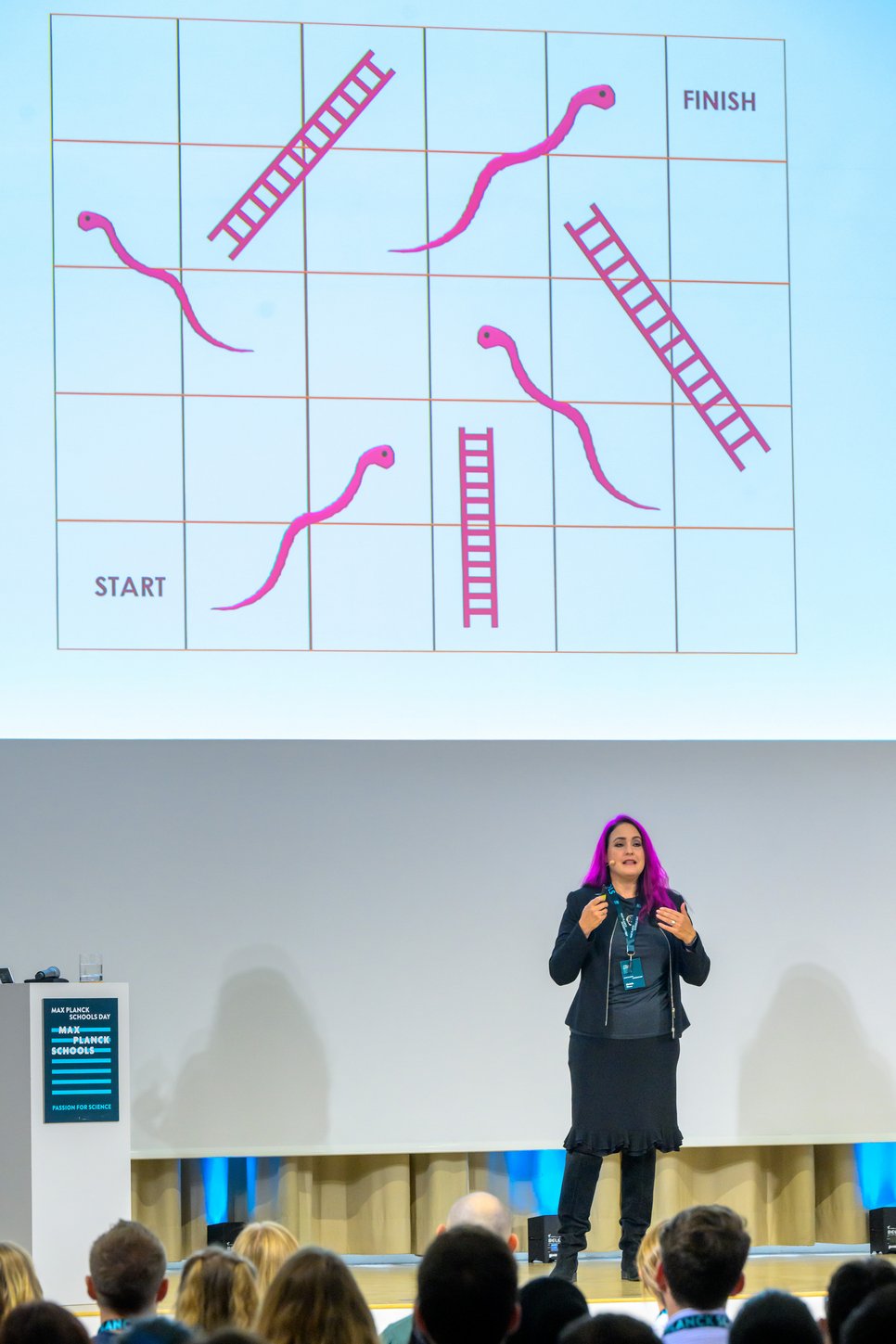
Michèle Heurs, Fellow of the Max Planck Schools of Photonics and professor at the Institute for Gravitational Physics at Leibniz University Hannover, held this year’s Passion for Science Lecture. The experimental physicist inspired the audience with her talk “Listening to the Universe” and impressively explained how the field of astronomy is changing and how we can not only see the universe but also hear it by detecting gravitational waves. “We are now in a new era,” Heurs explained, while pointing out that a career in science is rarely linear or even foreseeable, with both frustration or setbacks and unexpected success. She concluded by underlining the importance of basic research for a general scientific understanding in society.
The many facets of academic freedom in the panel discussion
The panel discussion on “Academic Freedom in a International Changing Landscape” constituted once again an essential element of the program. Moderated by Sophie Stigler, the experts panel addressed the question of what defines academic freedom today, how it is experienced throughout the world and how it can be protected. The discussion focused on the challenges and opportunities of academic freedom in a global context, as well as threats posed by geopolitical conflicts and those from within society.
At the beginning, panelist Katrin Kinzelbach, professor of human rights policy at the Institute for Political Science at the FAU Erlangen-Nuremberg, provided an international perspective on academic freedom. Drawing on her considerable expertise in the field, she gave valuable insights from the annual survey of the Academic Freedom Index. During the discussion, she particularly emphasized the restrictions on mobility due to visa requirements that affect scientists from certain countries. Moreover, she stressed that academic freedom should not be taken for granted, but must be continuously defended. She highlighted the importance of international cooperation in actively safeguarding this fundamental right. The second panelist, Stefan Klumpp, Fellow at the Max Planck School Matter to Life and Professor of Theoretical Biophysics at the University of Göttingen, offered a research-oriented perspective on the topic, underlining the value of interdisciplinary and international research cooperations. In his experience, the topic of academic freedom is surprisingly rarely discussed among students themselves, although it should be a fundamental aspect of their academic journey. Furthermore, he also stressed the significance of academic freedom in driving innovation and tackling global challenges through the open exchange of scientific knowledge. Speaking in his capacity as HRK President, Walter Rosenthal emphasized the pivotal role of scientific institutions to protect academic freedom and called for greater solidarity among researchers worldwide. He explained that the current situation regarding academic freedom in Germany is “quite good”, but is subject to increasing political influence and regulation. He also expressed concerns about the shift to the right in many European countries.
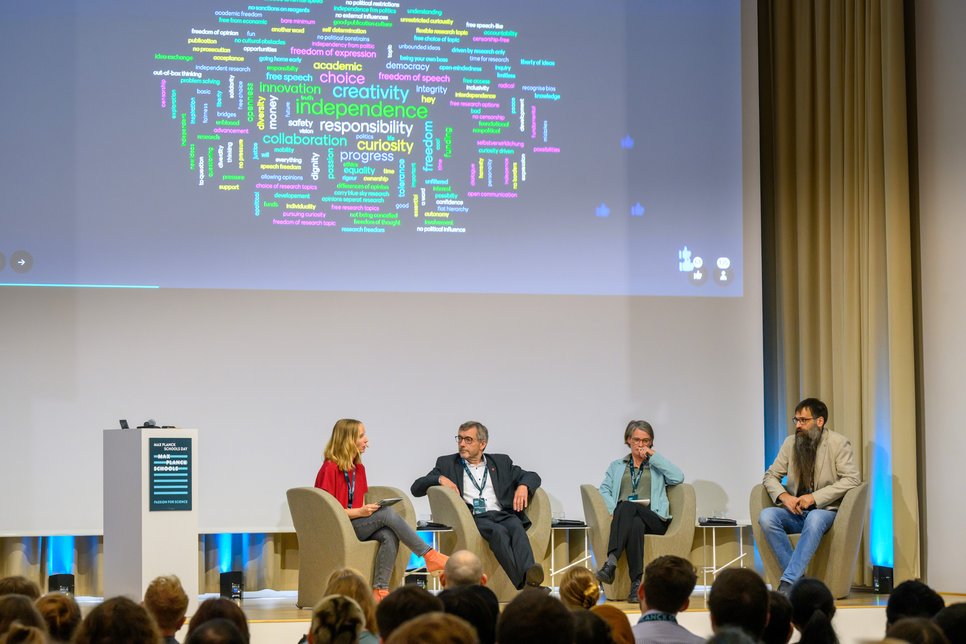
With a Mentimeter poll the audience raised aspects such as independence, creativity and responsibility as central values of academic freedom. Ultimately, the panelists agreed that it is of great importance for scientists worldwide to support each other and to actively promote the freedom of research. “Speak up when you see academic freedom threatened,” professor Kinzelbach concluded, appealing to the participants.
After the panel discussion, the doctoral candidates had the opportunity to delve deeper into the topic in three different workshops. Katrin Kinzelbach presented current data from the Academic Freedom Index, showing which countries are particularly at risk when it comes to academic freedom. In the workshop entitled “Academic Freedom – What does that even mean?”, she also addressed the question of how this data is collected, coded and finally evaluated on the basis of expert surveys. In the context of "Balancing Academic Integrity and International Research Cooperation", Stefan Klumpp and his workshop group discussed various aspects of international cooperation, while Arno Villringer, Speaker of the Max Planck School of Cognition and Director at the Max Planck Institute for Human Cognitive and Brain Sciences, led a lively discussion on the topic “Nuances of freedom of speech, expression, and academic freedom”.
Voices of the Max Planck Schools Day
TED-Talk atmosphere on stage
After a short break, the Science Talks with selected PhD candidates presenting their research, offered exciting scientific insights: Eva Schmidt (Cognition) vividly explained the effects of artificial intelligence on human relationships and the genetic diversity of future generations. She showed the audience how dating apps and emotion-detecting algorithms, for example, can influence our empathy and social interactions. Christoph Karfusehr (Matter to Life) then shared his passion for geometric shapes and their application in research with the participants. His humorous and lively presentation highlighted how the design of matter can open up new avenues for biomedical science. Last but not least, Josephine Spiegelberg (Photonics) introduced all guests to the fascinating world of 3D laser printing, drawing parallels to the invention of the printing press by Johannes Gutenberg and explaining how photonics, as a key technology, could change the future of material research. Once again, the Science Talks not only provided a deep insight into the pioneering research of the Max Planck Schools, but also impressively demonstrated how diverse and future-oriented the research areas of the three Schools are.
Captivating closing speech by Ferdi Schüth
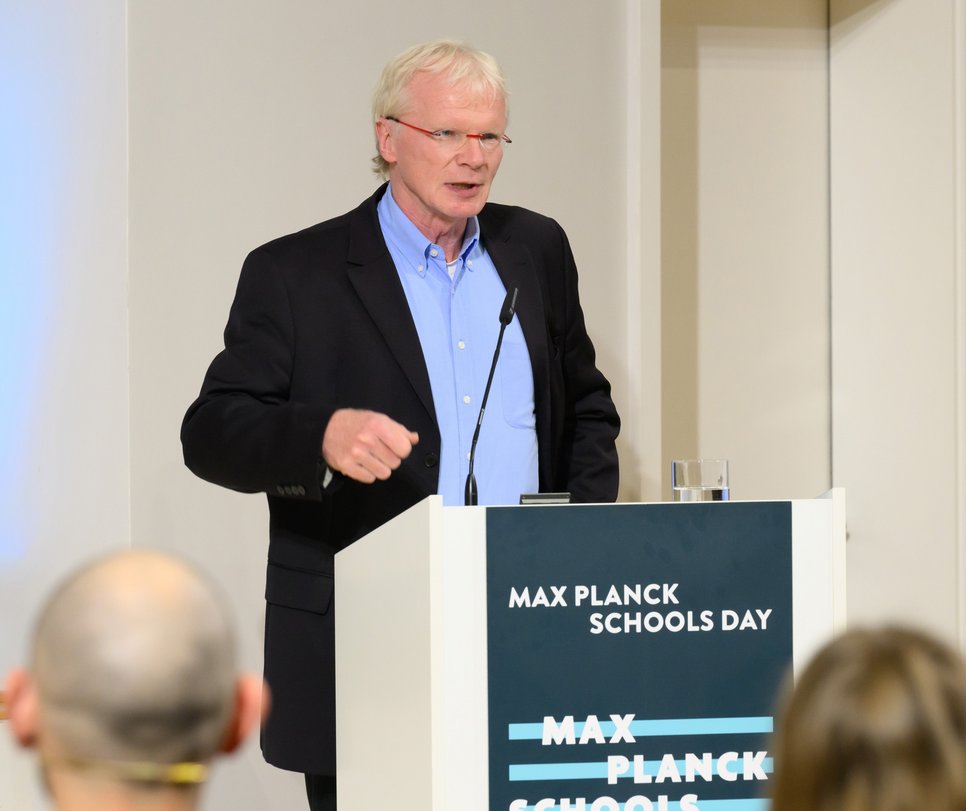
At the end of this eventful day, Prof. Ferdi Schüth, a member of the Max Planck Schools Steering Committee and Director at the Max Planck Institute for Coal Research, delivered the closing remarks. On behalf of MPG President Patrick Cramer, Schüth applauded the diversity of research and underlined the significance of international cooperation. He stressed that science does not only take place in the laboratory, but is also shaped by social interactions and informal discourse. In addition, he stated that one of the main tasks of the Max Planck Schools is to promote academic freedom in order to act as a driving force for innovation and progress. In conclusion, he emphasized the importance of such events for scientific exchange and a sense of community within the Max Planck Schools. “Celebrating and spending time together fosters connections that go far beyond science,” he said.
Overall the event highlighted the importance of academic freedom for scientific progress, particularly in an era of constant and rapid political and social transformation. As is customary, the Max Planck School Day ended with a festive barbecue, accompanied by an exceptional live music performance with the Photonics Band, as well as many inspiring conversations – making it a highlight of the three schools' calendar every year.
